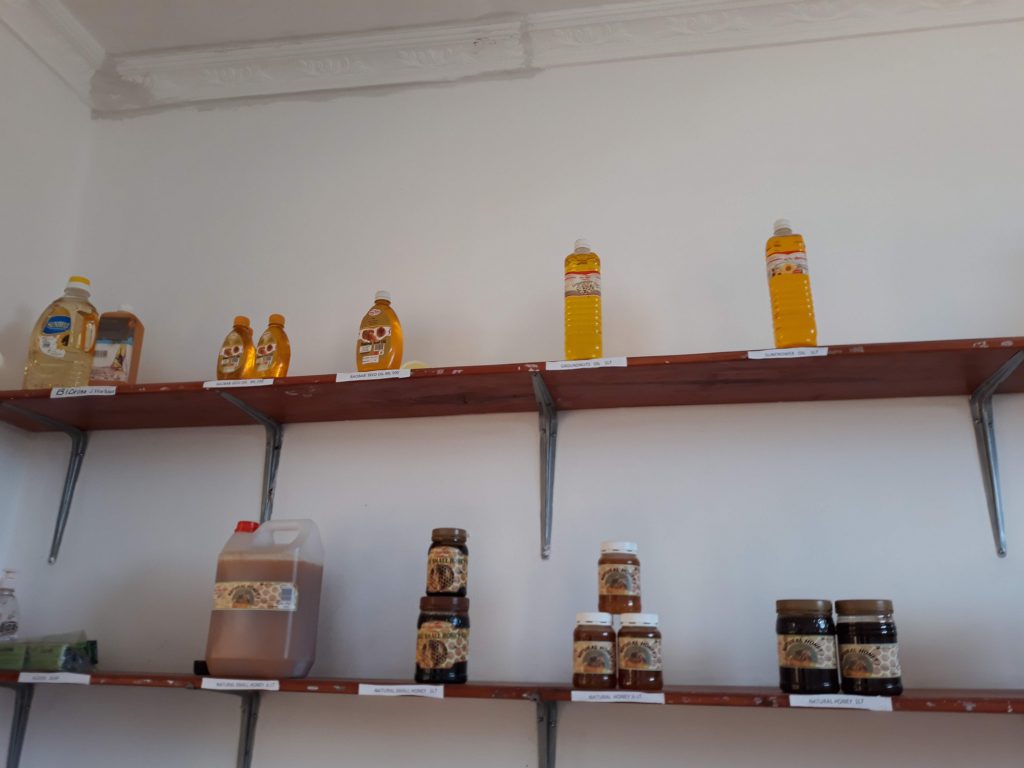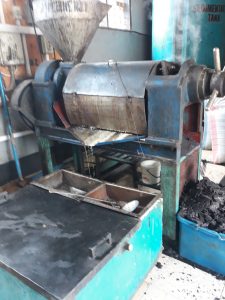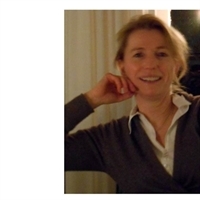Working on climate-resilient agriculture in East Africa
Climate change has brought more droughts to Tanzania. This not only affects the cultivation of sunflowers, but also the production of sunflower oil. To counter this, oil producers are searching for a solution. Researchers from Wageningen University & Research (WUR) are analysing the expected decline in production as a result of climate change in East Africa. With this knowledge, traders and food processors can assist farmers with drought-tolerant seeds and better tillage techniques and irrigation systems. Are you curious to discover how climate change knowledge leads to new partnerships and food security?
All over the world, farmers are facing a variety of consequences as a result of climate change: more drought or, on the contrary, more intense rainfall, higher temperatures or greater risks of night frost, flooding and salinisation. The European Environment Agency (EEA), recently warned about the potential risks faced by agricultural production in southern Europe, while the Global Commission on Adaptation, based in the Netherlands, emphasises the importance of global and timely adjustments. In the future, climate change may lead to higher food prices, also in urban areas in Africa. To prevent this, the agricultural sector needs to become more climate resilient. But how can we realise this? Wageningen University & Research (WUR) is participating in a Dutch project, coordinated by the SNV Netherlands Development Organisation, which is taking the lead in East Africa in Tanzania, Kenya and Uganda.
Beans, sesame and potatoes
‘We focus specifically on food crops that are cheap but are in demand,’ says Annemarie Groot, a researcher from Wageningen University & Research. The researchers are currently looking at sunflowers and the common bean in Tanzania, at sesame and soya in Uganda and at potatoes and mung beans in Kenya. In Tanzania, for example, many farmers cultivate sunflowers. ‘There is a high demand for sunflower oil in the city and in the rural areas,’ explains Groot.

But the increasing drought has caused a decline in the production of sunflower seeds and has seen a drop in the quality of the harvest as well. This creates a shortage of good sunflower seeds, leading to a problem for both the farmers and the companies that process these sunflower seeds. ‘The processors cannot meet the demand for oil and are unable to work efficiently, as many machines are left standing idle. This means that companies are feeling the economic impact of climate change and are therefore interested in investing in solutions that can help farmers to secure their crops,’ says Groot.
Effect on the harvest
This project seeks to collaborate with producers, food processors and sellers through workshops that discuss climate forecasts. This is where the contribution of WUR makes its impact. ‘We look at the effects of climate change on agricultural production,’ says Groot. ‘To do this, we work with the CAFFS’s climate projections specifically for regions and crops.’ Researchers at WUR are looking at what these climate projections mean for the cultivation and yield of a crop in a particular area. ‘The projections can show that the rainy season starts earlier or later. Scientists from WUR then look at how this affects the time of sowing and harvesting. And when there is an increased risk of drought, researchers model the effect of this on the yield of the crop,’ explains Groot.
“ Companies are feeling the economic impact of climate change and are therefore interested in investing in solutions that can help farmers to secure their crops.”
Climate risks
In climate risk assessment workshops, the participants discuss the climate forecasts and the effects. In addition to flood damage and the increased chance of diseases and pests, the greatest threat is the growing risk of drought. ‘We ask the participants how they are experiencing climate change, and all of them mention the higher temperatures. Some areas experience less rainfall in the growing season, while others get more,’ says Groot. By discussing the effects of climate change now and in the future, the participants determine whether there are real climate risks. If there is little water due to drought and heat, but the farmers have good irrigation systems, they are not exposed to any risks. But when the groundwater sinks so deep that irrigation is no longer possible or becomes too expensive, there is a climate risk.
Training, seeds and irrigation
 Once the risks have been identified, the workshop participants discuss ways to make the activities in the supply chain – from farmers and processors to traders and other market parties – more climate resilient. ‘Climate change also offers opportunities, including for companies that sell drought-resistant seeds and for insurance companies where farmers can cover themselves against drought damage,’ states Groot. Sunflower oil producers in Tanzania are interested in supplying drought-resistant sunflower seeds to farmers, on condition that the farmers will supply their harvest to these oil producers. The supply of seeds to the farmers can be combined with training, tools to cultivate the land and even new irrigation systems.
Once the risks have been identified, the workshop participants discuss ways to make the activities in the supply chain – from farmers and processors to traders and other market parties – more climate resilient. ‘Climate change also offers opportunities, including for companies that sell drought-resistant seeds and for insurance companies where farmers can cover themselves against drought damage,’ states Groot. Sunflower oil producers in Tanzania are interested in supplying drought-resistant sunflower seeds to farmers, on condition that the farmers will supply their harvest to these oil producers. The supply of seeds to the farmers can be combined with training, tools to cultivate the land and even new irrigation systems.
Revelation
‘We are currently looking to see whether climate-smart ideas can lead to a feasible and financeable business plan together with local banks,’ says Groot. If this combination of measures turns out successful, it can also be applied in other parts of Tanzania, Uganda and Kenya where sunflowers are cultivated. Groot believes that it is a revelation to use climate knowledge across the entire supply chain. ‘It stimulates cooperation between different parties that will increasingly feel the impact of lower food production as a result of climate change in the future. This approach can help to assure food security.’
Climate resilient agri-businesses for tomorrow
Climate Resilient Agri-businesses For Tomorrow (CRAFT) is a five-year project that was started in 2018. In addition to Wageningen University & Research, the following partners participate in this project: SNV, which coordinates the project, Rabobank, Agriterra and the CGIAR programme Climate Change Agriculture and Food Security (CAFF). This project is financed by the Dutch Ministry of Foreign Affairs.
Read more:
- About the Climate Resilient Agri-businesses For Tomorrow (CRAFT) project and the first reports.
- About the Global Commission on Adaptation which emphasises the importance of making adjustment on time.
- Dossier on climate-smart agriculture.
- Programme on green climate solutions programme, climate-smart agriculture expertise
- Read this article in Dutch


Dag Annemarie,
Interessant wellicht om een moment van gedachten te wisselen? In Brabant ben ik een project voor te bereiden met Zero Hunger Lab bezig bij Tilburg University, om op basis van Sorghum teelt en bioraffinage ervan een systeeminnovatie te modelleren in gebieden voor Afrika.
Beste Martijn,
The is een beetje druk met reizen in oktober, maar november is prima.
Vr groet Annemarie Groot
hi
its delightful to see the scientific sharing in high risk afria due to clate cange
Very interesting subject. Climate change issues are indeed complex and thus need a holistic approach to address them. Information should be well packaged and easily accessible.
Thanks Trish, indeed!
It is quite a challenge to persuade the climate modelers to visualize climate data in an understandable way
Interesting approach, yet any crop needs to be handled in a wider farming systems perspective. Based on 20 years field work in Mozambique, Kenya, Tanzania and Zambia I identified 15 operational problems in the implementation of a farming systems approach. These operational problems can be summarized in 4 main issues: holism, interdisciplinarity, attitudinal factors, and lack of countervailing power. See page 119 in my thesis.
Van Eijk, T. (1998). Farming Systems Research and Spirituality. An analysis of the foundations of professionalism in developing sustainable farming systems. PhD thesis, Wageningen Agricultural University, The Netherlands. http://edepot.wur.nl/121226
The question is then how these 4 main issues are handled in your project?
Best regards,
Toon van Eijk